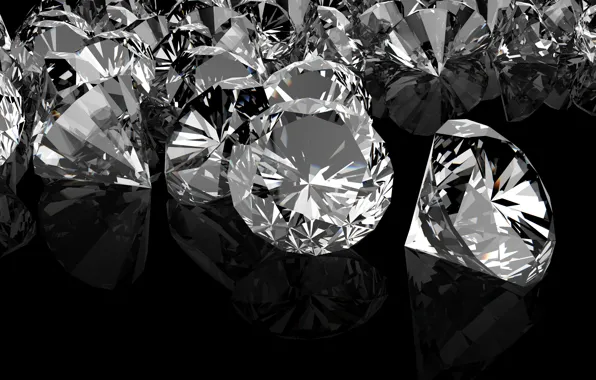Diamond vs Gold Value: Understanding the Key Differences
When it comes to investing in precious items, two of the most popular choices are diamonds and gold. Both have long been seen as valuable assets, but the question remains: diamond vs gold value—which one is the better investment? Understanding the differences in their values can help you make an informed decision about where to allocate your resources. This article will break down the key factors influencing diamond vs gold value, examining how each is priced, their market behavior, and the various factors that affect their worth.
Table of Contents
How Diamond vs Gold Value Is Determined
The value of diamonds and gold is determined by a variety of factors, but diamond vs gold value is influenced by different criteria. Gold’s value is largely driven by its weight, purity, and the current market price of the metal. Gold is traded on the commodities market, meaning its value is subject to fluctuations based on supply and demand, geopolitical events, and investor sentiment. On the other hand, diamond value is more complex to assess. The diamond vs gold value debate often focuses on the Four Cs—carat weight, cut, color, and clarity—which are all important in determining the price of a diamond. Unlike gold, diamonds are not as easily standardized, making it more difficult to compare the value of two diamonds.
The Role of Rarity in Diamond vs Gold Value
One of the most significant differences in diamond vs gold value lies in the rarity of each item. Gold has been used for thousands of years and is found in many parts of the world, making it a more accessible precious metal. However, despite its widespread availability, gold remains valuable because of its limited supply relative to demand. On the other hand, diamonds are far rarer than gold, with the majority of the world’s diamonds being found in just a few locations. The rarity of diamonds can significantly drive up their value, especially when they meet high-quality standards in terms of the Four Cs. In the diamond vs gold value debate, rarity plays a pivotal role in how each is perceived in terms of long-term value.
Market Volatility and Diamond vs Gold Value
Another important factor when comparing diamond vs gold value is the level of market volatility. Gold is traditionally considered a “safe-haven” asset, meaning its value tends to rise during times of economic uncertainty. In contrast, diamonds are not typically seen as a hedge against economic downturns in the same way. The price of diamonds can be more volatile and is subject to fluctuations based on demand within the luxury goods market. For example, diamonds can be affected by trends in fashion and the global desire for luxury items, whereas gold’s price is often influenced by macroeconomic factors such as inflation, currency value, and stock market performance. This makes gold a more stable investment, while diamonds can experience greater price swings, affecting the diamond vs gold value comparison.
Long-Term Investment: Diamond vs Gold Value
When considering a diamond vs gold value comparison for long-term investment, gold has traditionally been seen as the safer choice. The precious metal has been used as currency for thousands of years and remains one of the most reliable stores of value. Gold also has industrial applications in electronics and medicine, which adds to its value beyond investment. In comparison, diamonds, while valuable, are often seen as more of a luxury commodity. Their value can fluctuate based on consumer demand, making them less predictable as a long-term investment. Additionally, selling diamonds can be more challenging than selling gold, as the resale market for diamonds is more complicated. While both diamond and gold can offer good returns on investment, gold’s proven track record often makes it the preferred choice for those seeking stability.
Liquidity and Selling Ease: Diamond vs Gold Value
When comparing diamond vs gold value, liquidity is an important consideration. Gold is one of the most liquid assets in the world, meaning it can easily be sold or traded. Whether you’re dealing with a gold coin, bar, or even gold jewelry, it’s relatively simple to find a buyer. The market for gold is global, with a wide network of buyers and sellers, making it easy to cash in your gold when needed. In contrast, diamonds can be more difficult to sell. While they may have a high market value, finding the right buyer can take time, and the price you receive might not reflect the true worth of the diamond. In this regard, gold has an advantage over diamonds in terms of liquidity, which is an important factor to consider when evaluating the diamond vs gold value.
The Emotional and Sentimental Value in Diamond vs Gold Value
Another interesting aspect of the diamond vs gold value discussion is the emotional and sentimental value associated with each. Diamonds, particularly in the form of engagement rings, are often seen as symbols of love, commitment, and personal milestones. This emotional connection can sometimes make diamonds more valuable on a personal level than their market value might suggest. Gold, on the other hand, does not carry the same level of emotional significance for most people, although it can still have sentimental value, particularly in family heirlooms or gold jewelry passed down through generations. In terms of market value, this emotional factor doesn’t directly impact pricing, but it’s important to consider the personal significance that each holds for the individual. Whether it’s the emotional connection to a diamond or the historical weight of Sydney gold buyers, the diamond vs gold value is ultimately subjective depending on one’s perspective.
Conclusion: Which Is the Better Investment—Diamond or Gold?
When comparing diamond vs gold value, it’s clear that each has its unique advantages and challenges. Gold tends to be a more stable investment, with its value driven by broader economic factors and its liquidity making it easier to sell. It is also a long-standing store of value and tends to remain in demand due to its use in various industries. Diamonds, on the other hand, are rarer and can hold significant personal and emotional value. However, their price can fluctuate more than gold, making them a riskier investment, especially in the long term. Ultimately, whether diamond or gold is the better investment depends on your personal financial goals, how much risk you’re willing to take, and the role each asset plays in your portfolio. Understanding diamond vs gold value is essential to making an informed decision that aligns with your financial strategy.


